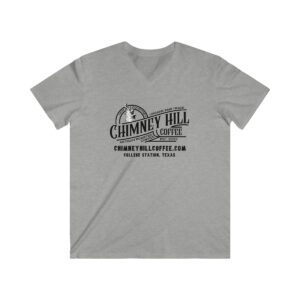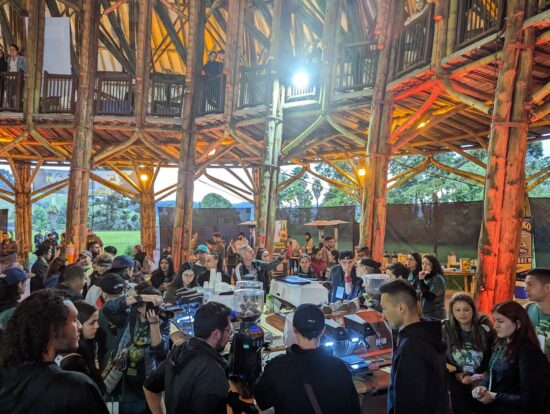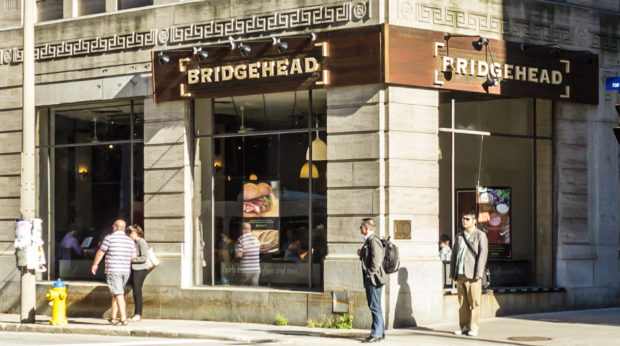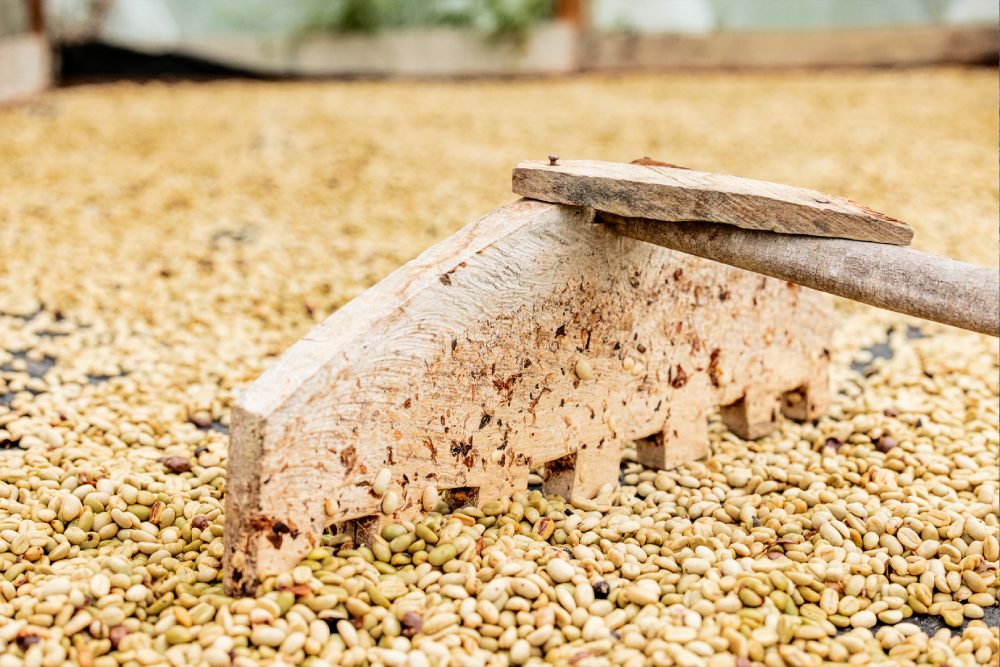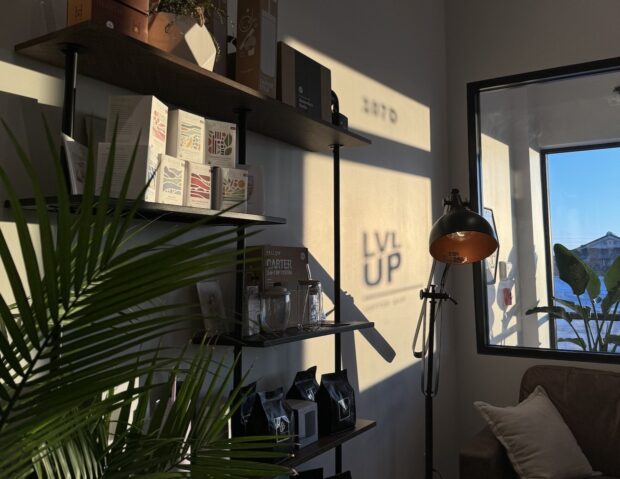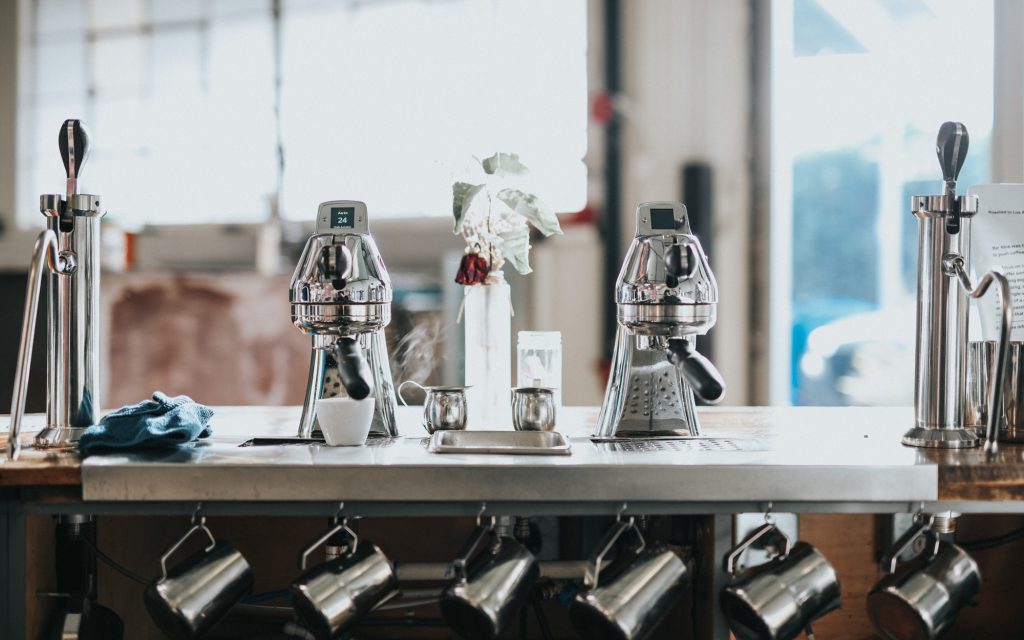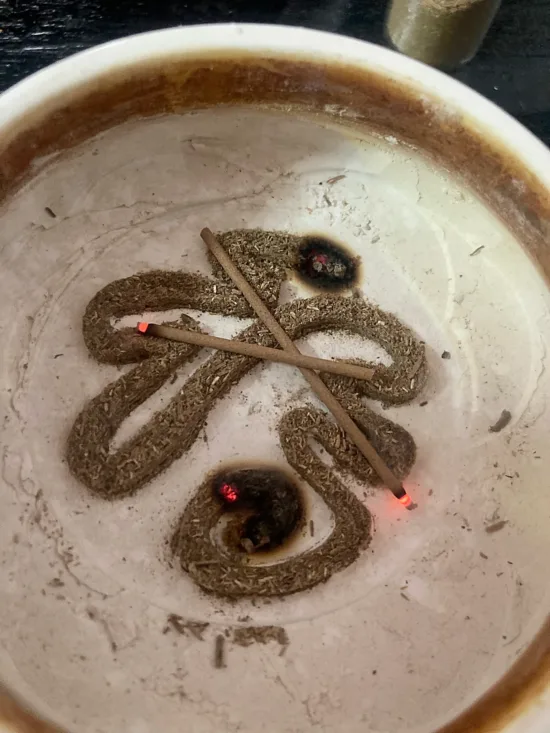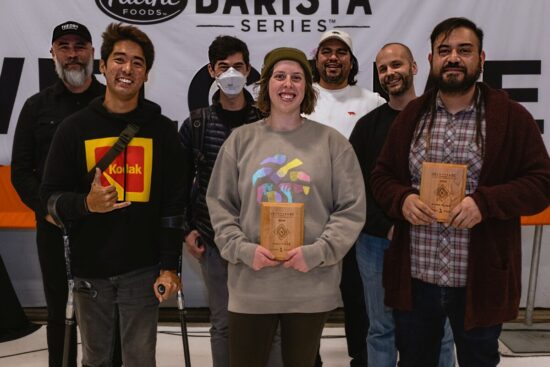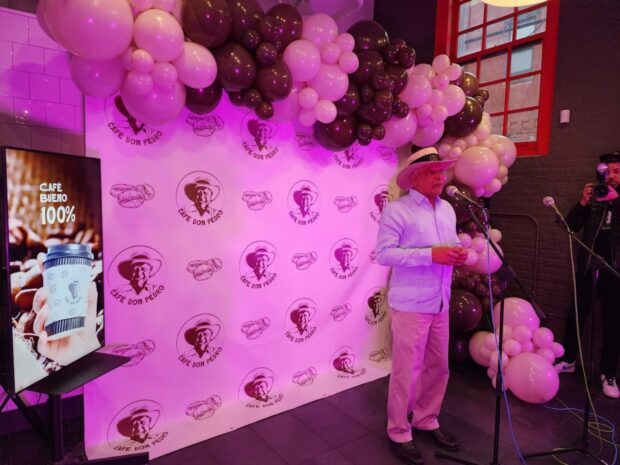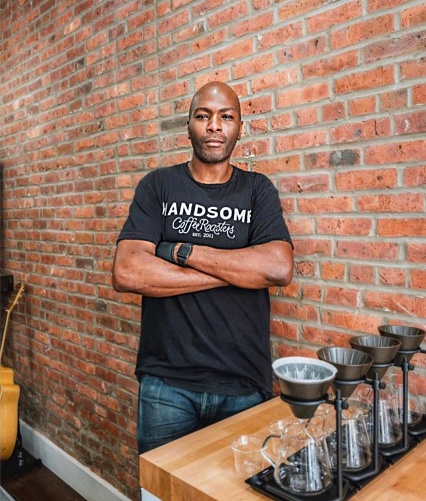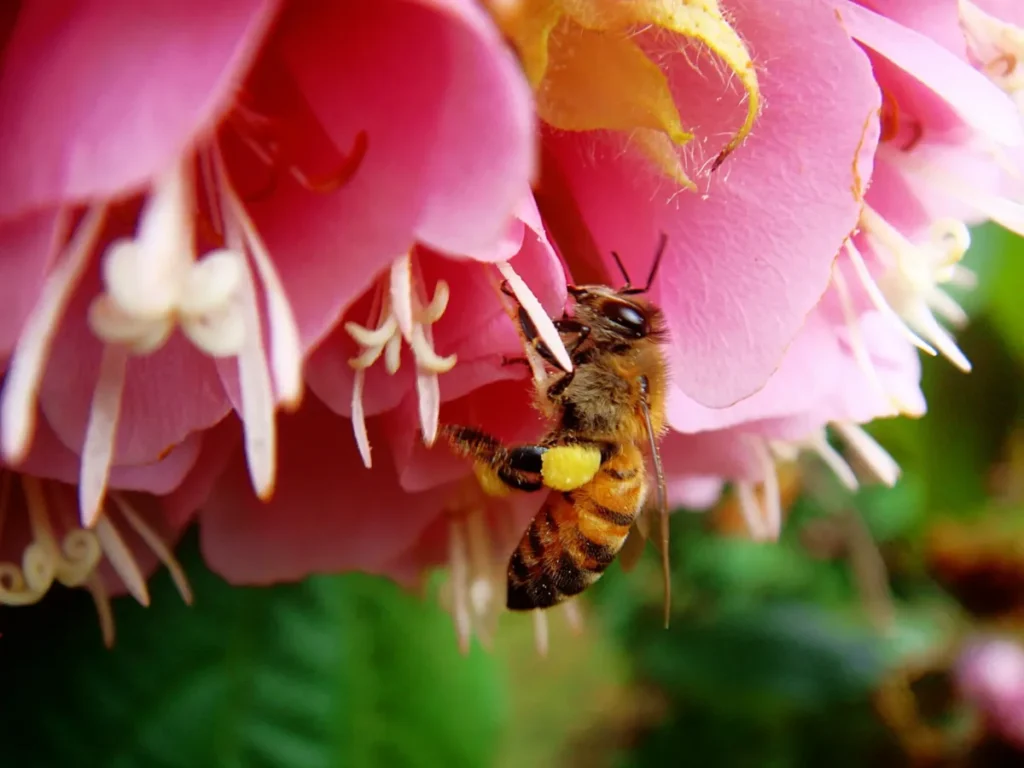The Malaysian capital is often visited in a hurry, but visitors who take the time to explore will discover a welcoming city, thanks in part to its friendly specialty cafés. BY TANYA NANETTI SENIOR ONLINE CORRESPONDENT Photos by Tanya Nanetti Kuala Lumpur, the capital...
Why it’s easier for wealthier producers to grow specialty coffee
Why it’s easier for wealthier producers to grow specialty coffee
Why it’s easier for wealthier producers to grow specialty coffee
Why it’s easier for wealthier producers to grow specialty coffee
Why it’s easier for wealthier producers to grow specialty coffee
Why it’s easier for wealthier producers to grow specialty coffee
Thread Coffee Roasters Opens Tailor-Made Roastery in Baltimore
The interwoven actions of Thread Coffee Roasters in Baltimore are finding exponentially more space this week with the grand opening of a brand-new production roastery and training lab. The worker-owned...
Toronto’s Pilot Coffee Roasters Acquiring Bridgehead Coffee for $3.6 Million
Toronto, Ontario-based specialty coffee roaster and retailer Pilot Coffee Roasters is acquiring Ottawa-based Bridgehead Coffee in a deal worth approximately US$3.6 million. Bridgehead, which has 21 coffee shop locations throughout...
Baking With Coffee For Beginners
This article is from the coffee website Sprudge at http://sprudge.com. This is the RSS feed version. Where to get started when introducing coffee to your bakes.
Bypass coffee brewing: How can it improve extraction?
There is a lot of science to brewing coffee. Whether knowingly or unknowingly, we trigger – and try to control – an almost endless number of chemical reactions to achieve the perfect extraction. To do so, we have to tweak different variables – such as grind size,...
Hawaiian Legislators Introduce Bills for Stricter Coffee Labeling
Legislators representing the Kona district of Hawaii have introduced a series of bills that would require more strict labeling requirements for single-origin coffees and blends containing Hawaiian-grown coffees. Some Kona...
New AFCA Director Gilbert Gatali on the 20th African Fine Coffees Conference
As the African Fine Coffees Association (AFCA) prepares for the 20th iteration of its flagship event, the African Fine Coffees Conference and Exhibition, the group is operating under new executive...
Philadelphia’s Café Don Pedro Seeks to Build Up Small Businesses
A Dominican-owned coffee roasting company called Café Don Pedro recently launched in Philadelphia with ambitions for direct trading and boosting more Latino-owned small businesses throughout its supply and distribution networks....
How much do you over-extract coffee in recipes?
This is sort of an odd question, but it's not a troll. While I love brewing specialty coffee, I also enjoy frappes (with or without ice cream). A major hurdle when using my espresso has been that while the final beverage tastes fine, the coffee is just too high...
Sprudge Maps Spotlight: Little Bear Coffee In Albuquerque, NM
This article is from the coffee website Sprudge at http://sprudge.com. This is the RSS feed version. Little Bear Coffee in Albuquerque, New Mexico.
Starbucks Will Hold their Own Barista Championship Thank You Very Much
This article is from the coffee website Sprudge at http://sprudge.com. This is the RSS feed version. The North American Barista Championship is expected to host over 15,000 Starbucks hourly workers.
What I Learned from My First Tea Ceremony
After taking in a brief moment of a tea ceremony in Thailand, I finally had the chance to participate in the full experience recently in Malaysia. BY TANYA NANETTI SENIOR ONLINE CORRESPONDENT Photos by Tanya Nanetti In the years that I worked as a barista in a café,...
Does specialty Robusta exist?
Hello! Has anyone tried 'specialty robusta'? I work with specialty cacao, and I often observe Robusta shrubs being cultivated at lower altitudes alongside cacao trees. Some farmers are experimenting with carbonic maceration to enhance the marketability of...
[MOD] The Daily Question Thread
Welcome to the daily /r/Coffee question thread! There are no stupid questions here, ask a question and get an answer! We all have to start somewhere and sometimes it is hard to figure out just what you are doing right or doing wrong. Luckily, the /r/Coffee community...
The Sprudge Guide To Coffee Shops In Vancouver, BC
This article is from the coffee website Sprudge at http://sprudge.com. This is the RSS feed version. Where to drink coffee in Vancouver, British Columbia, Canada.
Coffee Machine (High density use)
Hi everyone, i am new in this coffee world and i am looking to buy me a coffee machine to setup a small business. I am looking for affordable machine that is good for high density use. Im open for any recommendation and opinion. Thank you guys! Here is what ive found...
Which to buy first?
Hi there, mostly a lurker until now. I'm trying to incentivize myself towards some goals and decided that rewarding myself with a better coffee set up upon reaching those goals would be great. I plan to get myself one nice thing when I reach my intermediate goal...
[MOD] The Official Deal Thread
Welcome to the /r/Coffee deal and promotional thread! In this weekly thread, industry folk can post upcoming deals or other promotions their companies are holding, or promote new products to /r/Coffee subscribers! Regular users can also post deals they come across....
The London Coffee Festival has just more than doubled its ticket price
Last year: £18 This year: £38 Unbelievable. It’s the same venue and same setup. I’m just an ordinary coffee fan and every year I spend a lot buying roasts and equipment there. submitted by /u/gahgeer-is-back [link] [comments]
Explain making good coffee to me like I’m 5.
Hi everyone, I’m not new to drinking coffee, but I’d like to start making it (well) at home myself. I’m totally clueless. I have an old Keurig that I rarely use, as well as a basic Mr. Coffee maker. Usually I buy dark roast ground coffee (I do like a good, strong cup...
Seeking instant test for rough caffeine level in coffee
About once a month, some inattentive barista gives me regular coffee by mistake, which is a bummer. I drink decaf. So when I get coffee at a cafe, I'd like to do an instant test of the rough caffeine level by dipping a strip into the coffee. Something analogous...
Questions/thoughts on cardamom-forward "thermal shock" processed coffees.
Hey everyone, Having a cup of Buttercream from September roasters and got to thinking. This is the second thermal-shock processed coffee I have had with this huge, distinctive cardamom note (The other being DAK milky cake which is also from Colombia, but from a...
Third Wave Coffee brands
Greetings to all, I am reaching out to this knowledgeable community with a query regarding the recognition of coffee brands within the third wave coffee movement. Is there an existing, publicly accessible list that categorizes and acknowledges coffee brands as part of...
Looking for drip + espresso grinder – doesn’t need to be amazing.
I currently use an Ode for my drip and a Lido 3 for my espresso. I have ALS though and can no longer hand grind. My Ode is acting up after daily use 1-2 times a day for 3.5 years. I’ve cleaned it regularly it’s the motor I think having issues. Making odd noises....
Why it’s easier for wealthier producers to grow specialty coffee
It takes money – and sometimes a lot – to grow specialty coffee. Producers not only need to continuously maintain and improve quality and yields, but they also have to invest back into their farms. Whether it’s replacing equipment and machinery or planting more resilient varieties, producers need to turn a profit to operate their farms as successfully as possible.
For many of the 12.5 million smallholder coffee farming families in the world, this can be challenging to say the least. Despite being responsible for up to 80% of the world’s coffee supply, it’s estimated that up to 80% of these families live below the poverty line. Resultantly, investing back into their farms to grow higher-quality coffee can be impossible, which puts them at a clear disadvantage.
So it’s then a fair statement to make that it’s much easier for more economically advantaged producers to grow specialty coffee. But what impact does this have on the industry and how can we improve market access for smallholders?
To explore this topic further, I spoke to Ted Fischer, author of Making Better Coffee, and Chad Trewick, head of green coffee at Azahar Coffee Company.
You may also like our article on why more producers don’t market their coffee.

Understanding wealth disparity in coffee production
Coffee farms are businesses, and therefore need to make money to operate. But given that there is no strict market regulation for the price of specialty coffee, the amount paid to different producers can vary significantly.
Take, for instance, the C price, which is the trading price of commodity-grade arabica on the Intercontinental Exchange – a major commodities exchange based in New York City. At the most basic level, the C price is determined by supply and demand, so it is in constant fluctuation. As of late January 2024, the C price sits just under US $2/lb.
The price of specialty coffee is linked to the C market, but usually with an additional premium – which can range vastly.
One of the most recent (and extreme) examples is the 2023 Best of Panama auction, when a 96.5 point washed Gesha from Carmen Estates received a staggering bid of US $4,500/lb ($10,005/kg).
This is quite an exceptional case, of course, and shouldn’t be compared to the C price in any real terms. Considering, however, that the International Trade Centre’s Coffee Exporter’s Guide estimates most producers retain around 10% of the retail coffee price, this equates to about US $0.40 per cup – if we assume most coffee shops charge around US $4 per cup of filter coffee.
For many, it’s difficult to reconcile the fact that while some farmers received thousands of dollars at auctions for small amounts of coffee, many others live below the poverty line.
Can we easily explain these inequities?
Ted Fischer is a professor of Anthropology at Vanderbilt University in Tennessee. His book, Making Better Coffee, focuses largely on how indigenous Maya coffee farmers play an integral role in Guatemalan coffee production.
While he acknowledges the topic is incredibly complex and hard to fully unpack, he tells me that heritage and succession play a big role.
“In countries like Guatemala and other parts of Latin America, the wealthier farms tend to be those who have been operating for a much longer time,” he says.
The disparity also links back to colonial trade models. During the 1700s and 1800s, European colonial powers established the mass production and global trade of coffee, and retained the vast majority of wealth for themselves – while paying very little to no wages to farm workers.
Although colonial structures and dynamics are deeply ingrained in the coffee sector, the way coffee is traded has thankfully changed for the better over the last few decades, with a much bigger focus on direct trade and paying “fairer” prices.
However, when respective producing countries gained their independence and European colonial powers abandoned coffee production, it inherently meant there was a lot of inequity and disparity between different farms.
The reasons for this can vary widely – from location of the farm (i.e. higher altitudes often result in higher-quality coffee) to access to capital to knowledge of how the market operates.
“If producers have enough resources to be innovative and entrepreneurial, and have the capacity to experiment with different varieties and processing methods, then they can invest time and money into specialty coffee production,” Ted says.
“Smallholders can certainly produce great coffees,” he adds. “But more often than not, well-established, medium-sized farms have the resources to tap into these new markets.”

How does the wealth gap form?
Wealth inequality is a complex and intersectional issue that affects many societies and industries. One of the main contributing factors is that having money in the first place simply makes it easier to accumulate even more wealth, as well as improving access to investment opportunities, capital, industry networks, and education.
Moreover, being more financially secure means producers can often afford to try out new farming practices or plant new varieties – and bear the economic burden if their efforts aren’t successful.
In the specialty coffee industry in particular, “success” for producers is mostly determined by constantly evolving quality standards – which are largely established by consumer markets in the first place. To keep up, producers need to continuously innovate, operate efficiently, and, most importantly, gain access to different markets.
“To achieve all of this, you need resources beyond just making ends meet day-to-day, which can be a real struggle for some small-scale producers,” Ted says.
What’s more, accessing financial support and capital can be a challenge for smallholders, who are more likely to lack the necessary collateral to secure loans from banks. And if they are able to receive loans, they can often come with higher interest rates – which can worsen their financial situation in the long run.
Chad Trewick oversees Azahar Coffee Company’s green coffee sourcing operations – a company which focuses on paying Colombian producers stable prices for their coffee.
“Producers with fewer resources face strategic disadvantages in many ways,” he tells me. “If they have to cut back on important inputs for their coffee production, they will see lower yields, which keeps them stuck in a cycle of poverty.
“Without access to ongoing training and support for adopting new and innovative farming practices, they miss out on opportunities to improve coffee quality and farm efficiency,” he adds.
Building better networks
As well as focusing on quality, the specialty coffee industry places a lot of value and importance on building personal connections.
Although it’s largely the responsibility of roasters to share information about coffee production with consumers, there’s also an expectation for producers to establish long-term relationships with roasters, too. Additionally, attending industry events and hosting farm visits can be hugely beneficial for producers, but only a small number will have the financial resources and facilities to do so.
“Gaining access to different target markets and understanding demand and consumer preferences by attending events and expos puts some producers at a significant disadvantage,” Chad says. “The knowledge gained from these experiences can lead to greater success in the industry.”

Why improving market access for smallholders is so important
Specialty coffee prides itself on championing transparency, traceability, and sustainability. A big part of this is establishing genuine connections with producers and farms of all sizes.
“The current market structure, however, makes it challenging for those who grow smaller quantities of coffee to engage with specialty roasters,” Ted explains.
One of many approaches to improve market access is to minimise the number of intermediaries in the supply chain. These are people who carry out a number of tasks in producing countries, such as:
- Transporting coffee (whether as cherry or parchment)
- Milling
- Exporting green coffee
Intermediaries do play an important role in the industry – and can even benefit producers in many ways. Their presence in the supply chain, however, can often mean that producers end up receiving a smaller percentage of the final price for their coffee.
In theory, by streamlining the supply chain, smallholders can add more value to their coffee and potentially develop closer relationships with traders and roasters. But if producers don’t have the resources and infrastructure to mill and export their coffee in the first place then working with intermediaries is a necessity.
Alternative trade models
Co-operatives are another viable solution. Essentially, a coffee co-operative is a group of producers who join together to collectively improve their access to a number of resources. These can include fertilisers, farming tools, seeds, and loans.
Moreover, producers can also take part in formal training programmes and can leverage better marketing and business opportunities. In theory, this can help them to receive higher prices for their coffee, or improve stability by committing to selling a larger volume of coffee on a repeat basis.
Although this model has received some criticism in recent years (including the potential to reduce coffee quality), when well-managed, co-operatives offer a number of benefits to members – especially smallholders who own smaller parcels of land.

It’s a harsh reality that more economically advantaged producers inherently have better access to resources, capital, and new markets – and therefore can more easily grow specialty coffee.
But that doesn’t mean the industry shouldn’t do more to support smallholders. By bridging the wealth gap in coffee production, we can take steps towards a truly sustainable supply chain.
Enjoyed this? Then read our article on whether consumers actually want to be more connected to producers.
Perfect Daily Grind
Want to read more articles like this? Sign up for our newsletter!
The post Why it’s easier for wealthier producers to grow specialty coffee appeared first on Perfect Daily Grind.


